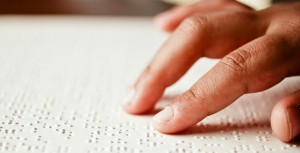 By making the choice to specialize an education degree to work with the visually impaired, educators are entering into an in-demand area of teaching and learning that requires an advanced skill set. Educators dedicated to advancing the academic success of visually impaired students must also dedicate themselves to completion of advanced degree programs, certification and license qualifications, and continuing education.
By making the choice to specialize an education degree to work with the visually impaired, educators are entering into an in-demand area of teaching and learning that requires an advanced skill set. Educators dedicated to advancing the academic success of visually impaired students must also dedicate themselves to completion of advanced degree programs, certification and license qualifications, and continuing education.
Graduate Degree in Special Education
To begin specializing an education in order to work with visually impaired students, educators will complete course work in special education. This will require taking courses such as educational psychology, cognitive development, literacy acquisition, and concepts and theories in schooling and learning. Additionally, graduate students will be required to complete field work and classroom observation. Many programs will also require the completion of student teaching when offering preparation for teacher certification.
Most graduate programs in special education are designed for educators with teaching experience and current certifications and state licenses for classroom instruction. For education professionals interested in pursuing teaching without these qualifications, additional course work will also be required.
Specialization Curriculum in Teaching Students with Visual Impairment
In addition to the core special education course work required, graduate students interested in working with the visually impaired will also complete specific courses that are focused on this particular student population. These courses include introduction to deaf-blindness, orientation and mobility fundamentals, educational implications of visual impairments, assessment of visually impaired students, teaching methods for students with visual impairment, and advanced braille formats.
Advanced course work in special education is also likely to be focused on the specific needs of student populations with visual impairment. Examples include learning environments with mobility considerations, cultural considerations in visual impairment education, IEP development for students with impaired vision, and instructional and curriculum development for visually impaired students.
The additional course work is essential, because teachers and other education professionals who work with visually impaired students must be prepared for supporting additional student needs. Some of these areas include in communication, instructional delivery with the use of alternative mediums, and increased cooperation with parents and other support personnel.
Certification, Endorsements, and Licenses
The unique educational needs of visually impaired students require for additional certification and endorsements in order to most effectively deliver an education and support the learning of each individual student with a visual impairment. The U.S. Department of Education has additional information for certification requirements listed by state on their website.
All positions working with visually impaired students do not require classroom teaching certification. Whether working in a classroom or in an administrative or other role, there are additional courses, professional development workshops, and training that can be beneficial as well. Some examples of these workshops can be found at the American Foundation for the Blind website.
Related Resource: Speech Language Pathology
The demand for qualified professionals to work with visually impaired students has risen considerably, and all areas of education require knowledgeable experts in the field. An understanding of how to specialize an education degree to work with the visually impaired is a key step in preparing for classroom teaching, paraprofessional support, administrative roles, and development of materials for all ages of visually impaired students.
Be the first to comment